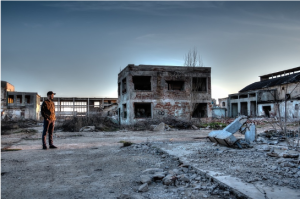

The economic migration from Balkan to Western countries is not a new phenomenon. This, we can say anomaly, is something that is happening for a long time, but it has been multiplied since the beginning of the 1990s. Maybe Slovenia does not have a big problem with this, but it would still be a lie if we say that Slovenia is resistant to it. Other states from former Yugoslavia, along with Albania, Bulgaria and also Greece suffer great damage to the state labor market, pension fund, and budget because of this problem. Can we be so opened to say that this could be a big security problem for these states? Well, YES! It can be a major problem and we will try to explain why.




